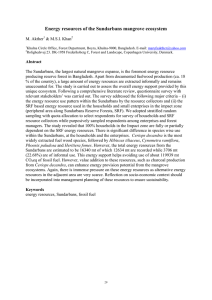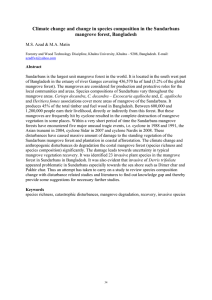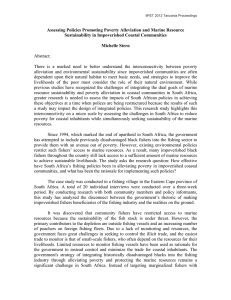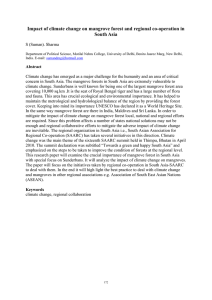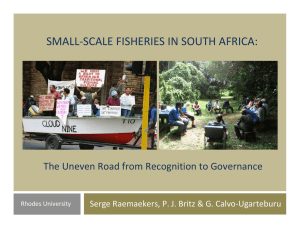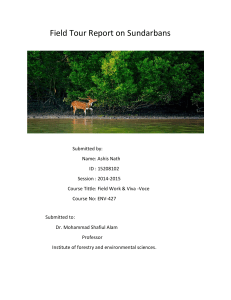Risk coping strategies of small-scale fishing communities in the
advertisement
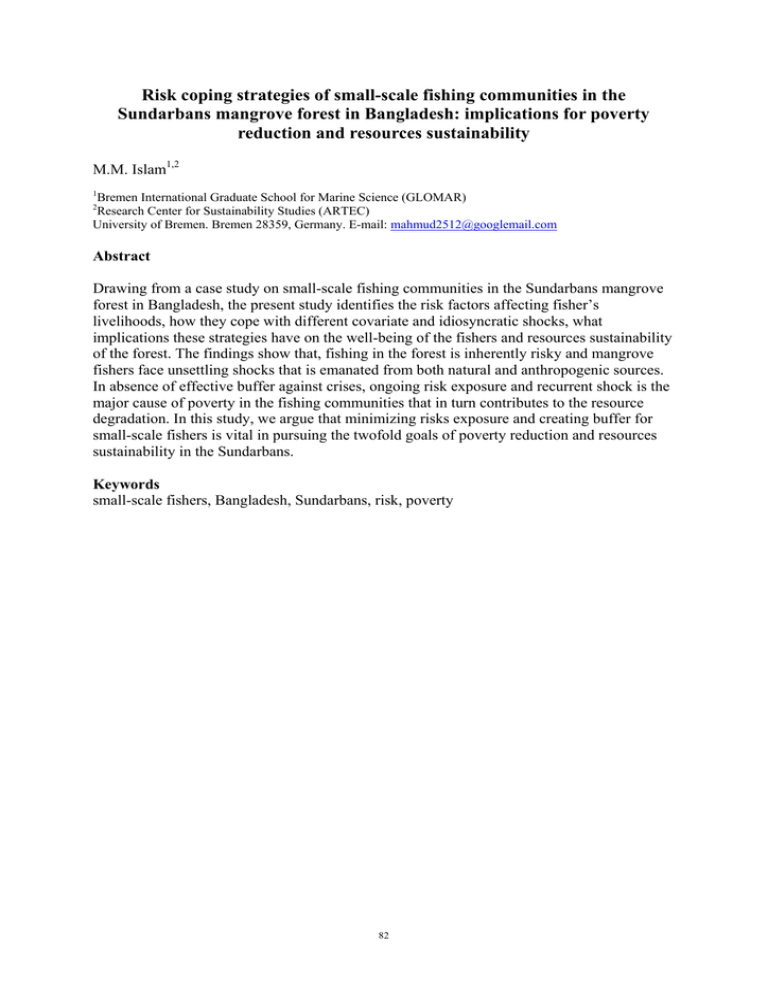
Risk coping strategies of small-scale fishing communities in the Sundarbans mangrove forest in Bangladesh: implications for poverty reduction and resources sustainability M.M. Islam1,2 1 Bremen International Graduate School for Marine Science (GLOMAR) Research Center for Sustainability Studies (ARTEC) University of Bremen. Bremen 28359, Germany. E-mail: mahmud2512@googlemail.com 2 Abstract Drawing from a case study on small-scale fishing communities in the Sundarbans mangrove forest in Bangladesh, the present study identifies the risk factors affecting fisher’s livelihoods, how they cope with different covariate and idiosyncratic shocks, what implications these strategies have on the well-being of the fishers and resources sustainability of the forest. The findings show that, fishing in the forest is inherently risky and mangrove fishers face unsettling shocks that is emanated from both natural and anthropogenic sources. In absence of effective buffer against crises, ongoing risk exposure and recurrent shock is the major cause of poverty in the fishing communities that in turn contributes to the resource degradation. In this study, we argue that minimizing risks exposure and creating buffer for small-scale fishers is vital in pursuing the twofold goals of poverty reduction and resources sustainability in the Sundarbans. Keywords small-scale fishers, Bangladesh, Sundarbans, risk, poverty 82
